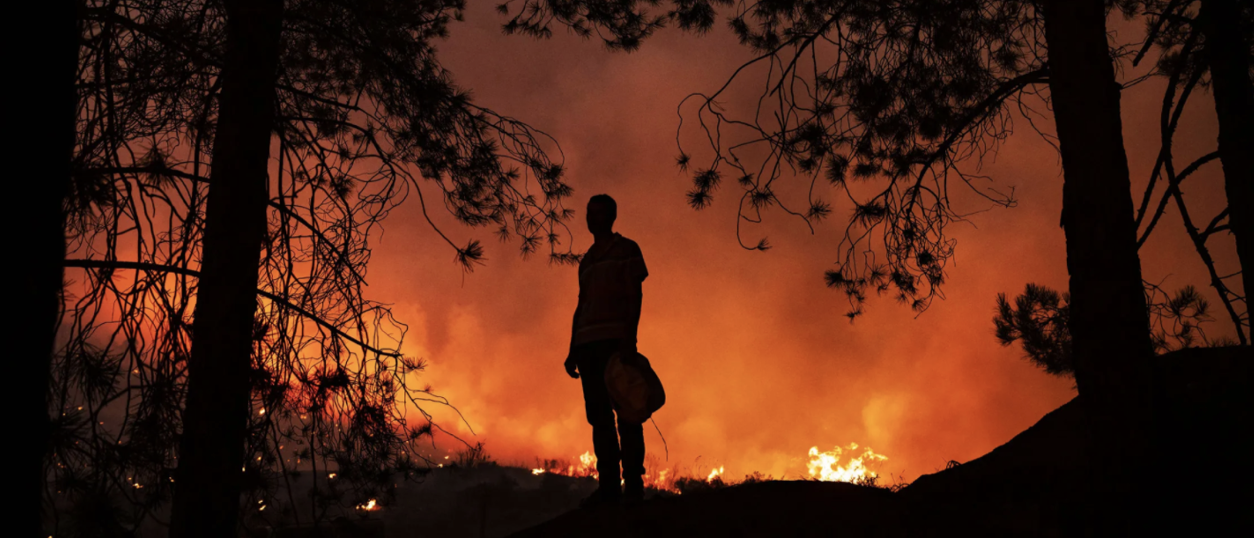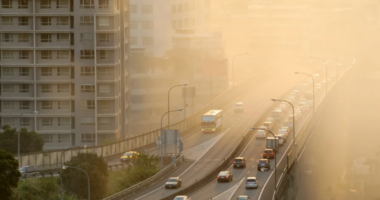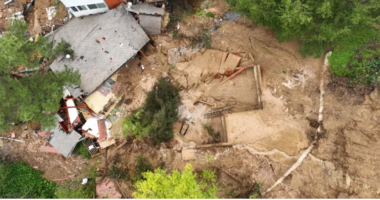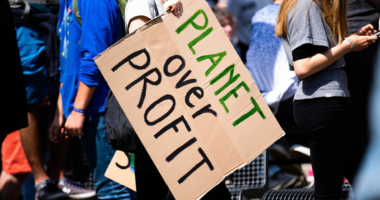Climate, Health and Equity Brief
Eco-anxiety, PTSD and the U.S. Takes Action
October 11, 2021
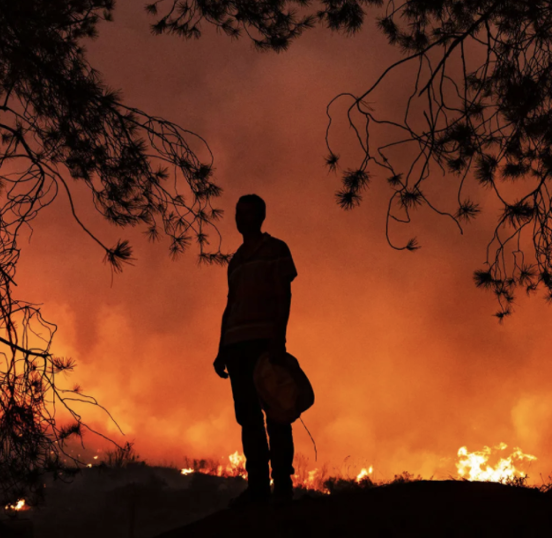
The Climate, Health & Equity Brief is GMMB’s take on the week’s news on the current impacts of climate change. If you haven’t subscribed yet, you can do so by clicking here.
Hot Topic: Mental health. This is Mental Health Awareness Week, and there’s no shortage of connections between the climate crisis and the state of our individual and collective anxiety. According to Google, searches for “climate anxiety” increased by 565 percent in the past year, demonstrating the toll that extended drought, intense heatwaves, massive wildfires and extreme weather events are having on our wellbeing.
Studies show that these traumatic events have lasting mental health impacts on the communities they hit, including cases of post-traumatic stress disorder (PTSD), which is most often associated with soldiers returning from war. While the headlines fade after a few days or weeks, the psychological wounds can last for months or even years. Children, whose brains are still developing, and marginalized communities, who are often hit the hardest and face the greatest barriers to accessing mental health care, are most heavily affected.
Among these communities is one especially hard-hit group: farmers. A farmer crisis hotline has seen a significant increase in calls related to climate-fueled disasters, including heat waves, droughts, storms and wildfires, as farmers fear for their livelihoods and consider radical changes to their crops in order to adapt to new weather patterns. Despite these challenges, many rural communities where the farmers reside lack access to mental health professionals who are trained in supporting these unique populations and their climate-linked traumas.
And new action from the federal government indicates how the far-reaching dangers of planetary warming intersect with almost every facet of life, from the food supplied by farmers to our ability to travel to and from our homes. Under an executive order from President Biden, 23 federal agencies released climate adaptation and resilience plans this week addressing the most significant climate risks and vulnerabilities to their purviews. Threats highlighted by federal agencies ranged from the Department of Transportation warning faster degradation of asphalt in high temperatures, the Department of Energy highlighting risks to radioactive waste in the face of climate hazards and the Department of Defense underscoring the link between climate change and potential conflict. However, each agency also emphasized their ability to address the threats while aiming to build a more equitable future. While there is much more research and work to do, the plans are a critical first step to incorporating adaptation and resilience strategies into every aspect of our government and economy.
Some heartening news: after the IPCC report came out in August, there was a staggering 2,600 percent increase in Google searches for “what can I do about climate change.” While individual action alone can’t replace the systemic changes needed to combat the impact of climate change, it’s a heartening trend toward awareness among those who can mobilize and call for institutional reform—and turn climate anxiety into climate action.
— Matt & Traci, GMMB
Human Health
Google searches for the term “climate anxiety” increased by 565 percent in the past year, with the search terms “map sea level rise” and “what can I do about climate change” increasing 1,000 and 2,600 percent respectively in the week following the IPCC report. (Grist)
A new study found that the number of days urban residents were exposed to extreme heat increased by 200 percent from 1983 to 2016 due to climate change and population growth. (Axios)
A new investigation found that the State of California significantly undercounted the number of heat-related deaths in the past decade, estimating the actual total at 3,900—six times the official count. (Los Angeles Times)
Planetary Health
The Global Coral Reef Monitoring Network found that 14 percent of coral was lost worldwide between 2009 to 2018 due to warming water temperatures, but offered hope for coral reefs to recover if emissions are significantly reduced. (The Washington Post)
New research has explicitly linked climate change and marine plastic pollution, finding that emissions from plastic use perpetuate climate change, and that extreme weather events disperse and worsen plastic pollution, thereby harming marine species and ecosystems. (Our Daily Planet)
A portion of the Eel River in California completely stopped flowing and ran dry for one week in what is believed to be the first time in its history after two consecutive dry winters that have affected the river’s ecology. (San Francisco Gate)
We face a climate crisis that threatens our people and communities, public health and economy, and, starkly, our ability to live on planet Earth.”
-President Joe Biden’s Executive Order on Tackling the Climate Crisis at Home and Abroad
Equity
Experts are discussing the mental health impact climate change has on people of color who already disproportionately experience the effects of extreme weather. (CNN)
Climate change is already threatening the livelihoods of farmers, but it’s also taking a toll on their mental health as they face painful decisions and incredible losses due to increasingly powerful extreme weather events. (Civil Eats)
Politics & Economy
The Biden Administration released unprecedented climate adaptation plans for the 23 federal agencies, which included concerns about threats to America’s food supply, mobility, infrastructure, federal investments and more with potential strategies for adaptation. (The New York Times)
A new report by the International Energy Agency found governments and private investors have only come up with a quarter of the funding needed by 2030 to develop and deploy clean hydrogen needed to meet net-zero strategies. (Reuters)
The IMF found that the fossil fuel industry benefits from $11 million in subsidies globally every minute, totaling $5.9 trillion in subsidies in 2020, and estimates global CO2 emissions would be reduced by over a third if fossil fuel prices reflected their true cost. (The Guardian)
Cities around the world are considering innovative ways to transform their public transportation systems to combat climate change, taking steps to electrify a sector that is often the largest and fastest-growing emitter of carbon dioxide. (The New York Times)
Action
Prime Minister Boris Johnson announced a pledge that electricity in the United Kingdom will be produced from clean sources by 2035, as the country works to meet its goal of a 78 percent reduction in carbon emissions by the same year. (Reuters)
General Motors announced its intentions to exceed Tesla as the largest producer of electric vehicles in the U.S. and expects 50 percent of its factories in North America and China will be capable of electric vehicle production by 2030. (Axios)
The country of Denmark plans to reduce emissions in the agricultural sector by 55-65 percent by 2030 in comparison to 1990 levels, allocating $600 million for the landmark effort. (Bloomberg)
Kicker
Need some tips on how to cope with climate anxiety? Check out these ideas.
The GMMB Climate, Health & Equity Brief would not be possible without the contributions of the larger GMMB California team—Aaron Benavides, Elke Cortes, Stefana Simonetto and Sydney Lykins. Feedback on the Brief is welcome and encouraged and should be sent to CHandEBrief@gmmb.com.


